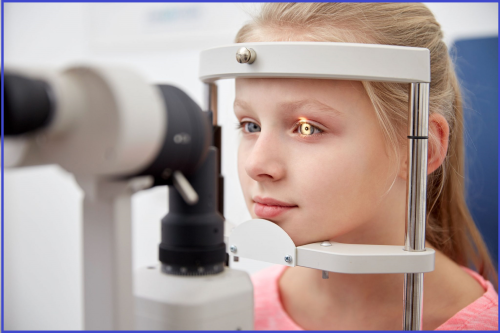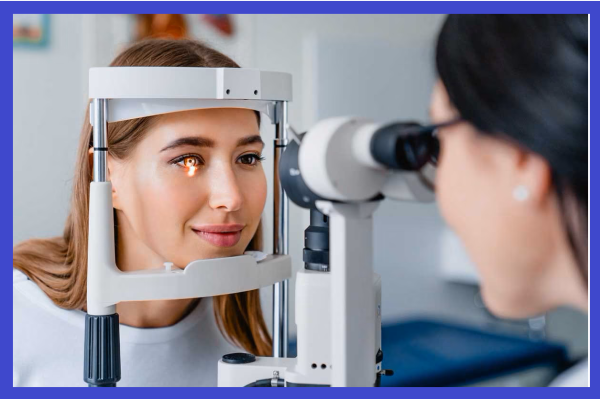Our vision is a precious sense that most of us rely on every day. From reading our favorite books to watching beautiful sunsets, our eyes play a crucial role in experiencing the world around us. Yet, many people neglect their eye health until they experience problems. This begs the question: Is the eye doctor necessary, or can we get by without regular check-ups? In this article, we will explore the importance of visiting an eye doctor, the types of eye doctors available, and when you should seek their expertise.

Table of Contents
Understanding the Role of an Eye Doctor
Is the Eye Doctor Necessary Eye Health is Vital
Our eyes are not only the windows to our souls but also vital tools that help us navigate the world around us. Regular eye check-ups with a qualified eye doctor, often called optometrists or ophthalmologists, can help ensure that your eyes are in top condition.
Is the Eye Doctor Necessary Early Detection of Eye Conditions
One of the primary reasons to visit an eye doctor is to detect eye conditions early. Conditions like glaucoma, cataracts, macular degeneration, and diabetic retinopathy often develop slowly and without noticeable symptoms in their early stages. However, an eye doctor can catch these issues before they cause irreversible damage.
The Importance of Routine Eye Exams
Is the Eye Doctor Necessary Maintaining Good Vision
Regular eye exams are essential for maintaining good vision. Even if you think your vision is perfect, subtle changes can occur over time. Your eye doctor can assess your visual acuity and prescribe corrective lenses or adjust your current prescription as needed.
Eye Strain and Computer Vision Syndrome
Detecting Systemic Health Issues Surprisingly, your eyes can reveal more than just vision problems. During an eye exam, an eye doctor may detect signs of systemic health issues such as diabetes, high blood pressure, and even certain types of cancer. Early detection can be life-saving.
In today’s digital age, many of us spend hours in front of screens, leading to eye strain and computer vision syndrome. An eye doctor can provide guidance on how to alleviate these issues and recommend specialized glasses or exercises to reduce discomfort.
Dispelling Myths About Eye Doctors
I Don’t Need an Eye Doctor; I Have 20/20 Vision
Even if you have perfect 20/20 vision, it’s still crucial to see an eye doctor regularly. They can check for other issues like eye diseases and offer guidance on protecting your eyes from environmental factors.
Is the Eye Doctor Necessary Eye Exams Are Expensive
Many people believe eye exams are costly, but they are an investment in your long-term eye health. Some health insurance plans cover eye exams, and many eye doctors offer affordable options for those without insurance.
Understanding the Importance of Eye Health
Before delving into whether or not you need to visit an eye doctor, it’s essential to understand the significance of eye health. Our eyes are incredibly complex organs, and their health can be influenced by various factors, including genetics, lifestyle choices, and environmental conditions.
Detection of Silent Issues:
One of the primary reasons for regular eye check-ups is that they can help detect eye problems even before you experience noticeable symptoms. Many eye conditions, such as glaucoma or diabetic retinopathy, can progress silently without causing discomfort until they reach an advanced stage. Early detection through regular eye exams can prevent irreversible vision loss.
Prescription Changes:
Even if you don’t currently wear glasses or contact lenses, your vision can change over time. Regular eye exams can detect subtle changes in your vision and help you stay up to date with any needed prescription adjustments.
General Health Insights:
Did you know that an eye doctor can sometimes identify general health issues during an eye examination? Conditions like diabetes, hypertension, and certain autoimmune diseases can manifest in the eyes. Early detection of these underlying health problems can lead to prompt treatment and better outcomes.
Types of Eye Doctors
To answer the question, “Is the eye doctor necessary?” it’s crucial to understand the different types of eye care professionals available. Depending on your needs and specific eye health concerns, you may consult one or more of the following specialists:
Optometrists:
Optometrists are primary eye care providers. They perform comprehensive eye exams, diagnose and treat common eye conditions, prescribe glasses and contact lenses, and provide pre- and post-operative care for certain eye surgeries.
Ophthalmologists:
Ophthalmologists are medical doctors who specialize in eye care and eye surgery. They can diagnose and treat a wide range of eye conditions, perform surgical procedures (such as cataract surgery and LASIK), and manage more complex eye diseases.
Opticians:
Opticians are trained to fit and dispense glasses and contact lenses based on prescriptions provided by optometrists or ophthalmologists. While they don’t diagnose or treat eye conditions, they play a crucial role in ensuring that your eyewear fits correctly and meets your visual needs.
When Should You Visit an Eye Doctor?
The frequency of your visits to an eye doctor depends on various factors, including your age, risk factors, and any existing eye conditions. Here are some general guidelines to help you determine when you should schedule an appointment:
Is the Eye Doctor Necessary, Children:
Children should have their first eye exam by the age of six months, followed by regular check-ups at ages three and five. Afterward, they should have yearly exams to ensure proper vision development and detect any issues early.
Is the Eye Doctor Necessary , Adults:
Adults between the ages of 20 and 40 with no known eye conditions should have an eye exam at least every two years. If you wear glasses or contact lenses, have a family history of eye disease, or have underlying health conditions, annual check-ups may be recommended.
Seniors:
Individuals aged 40 and older should consider annual eye exams. Age-related eye conditions, such as cataracts, glaucoma, and macular degeneration, become more common as we get older.
Specific Concerns:
If you experience any sudden changes in your vision, eye pain, redness, or other unusual symptoms, do not wait for your scheduled appointment. Seek immediate care from an eye doctor.
Choosing the Right Eye Doctor
Optometrist vs. Ophthalmologist
It’s essential to understand the difference between an optometrist and an ophthalmologist. Optometrists specialize in vision care and can prescribe glasses and contact lenses, while ophthalmologists are medical doctors who can diagnose and treat a wider range of eye conditions, including surgery.
Ask for Recommendations
When choosing an eye doctor, ask for recommendations from friends, family, or your primary care physician. Reading online reviews and checking credentials can also help you make an informed decision.
Eye doctor is not just a necessity; they are your partners in maintaining clear vision and overall eye health. Regular eye exams are crucial for early detection of eye conditions, preserving good vision, and even identifying potential systemic health issues. Don’t let myths or misconceptions about eye doctors prevent you from taking care of your eyes.
MIn answering the question, “Is the eye doctor necessary?” the resounding answer is yes. Regular eye check-ups play a vital role in maintaining good eye health, detecting problems early, and ensuring that your vision remains clear and comfortable throughout your life. Remember that your eyes are unique, and their care should not be overlooked. Whether you consult an optometrist or an ophthalmologist, prioritize your eye health, and schedule those regular check-ups. Your future self will thank you for the clear vision and overall health that come with it.


1 thought on “Is the Eye Doctor Necessary ? A Comprehensive Guide to Eye Health”